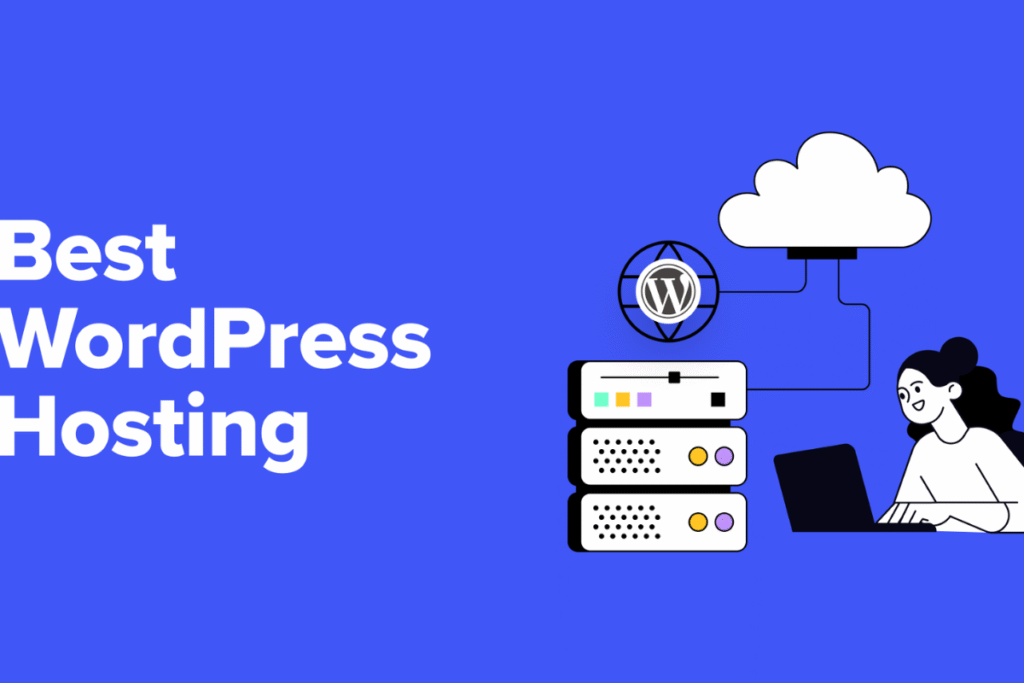Running a website is more than just designing pages and posting content. Behind the scenes, web hosting plays a critical role in performance, security, and user experience. Choosing the right hosting provider can make the difference between a successful online presence and a website that struggles to stay online.
In this article, we’ll explore the top hosting features every website owner should know. Whether you are a beginner launching your first blog or an entrepreneur managing an online store, these features will help you make informed decisions for long-term success.
1. Uptime Guarantee
One of the most essential features of any hosting service is its uptime guarantee. Uptime refers to the amount of time your website stays online and accessible to visitors.
-
Why it matters: If your site frequently goes down, you lose traffic, revenue, and credibility.
-
What to look for: Choose a host that offers at least 99.9% uptime guarantee. Premium hosts even push toward 99.99% reliability.
Pro Tip: Check customer reviews to verify if the hosting provider actually delivers on its uptime promises.
2. Speed and Performance Optimization
Your website’s loading speed has a direct impact on user experience and SEO rankings.
-
Server technology: Look for hosts that provide SSD storage, LiteSpeed servers, and CDN (Content Delivery Network) integration.
-
Caching options: Hosting with built-in caching mechanisms reduces load times significantly.
-
Global reach: If you expect traffic from multiple countries, opt for providers with data centers across the globe.
Remember: A faster website keeps visitors engaged and reduces bounce rates.
3. Scalability and Resource Allocation
Your hosting needs today may not be the same tomorrow. Scalability is the ability to upgrade your hosting plan easily as your website grows.
-
Shared Hosting: Great for beginners but limited in resources.
-
VPS Hosting: Offers more control and dedicated resources.
-
Cloud Hosting: Highly scalable, perfect for sites with unpredictable traffic.
-
Dedicated Hosting: Best for large enterprises needing full server control.
Pro Tip: Always select a provider that allows easy scaling without downtime.
4. Security Features
In an age of cyber threats, hosting security is a non-negotiable factor.
-
SSL Certificates: Secure your site with HTTPS encryption (many hosts now provide free SSL).
-
Malware Scanning & Removal: Protects against malicious attacks.
-
Firewall & DDoS Protection: Safeguards against hacking attempts.
-
Regular Backups: Essential for disaster recovery.
Note: Even small business websites are targeted by hackers. Security should always be a top priority.
5. Customer Support
No matter how tech-savvy you are, there will be times when you need help.
-
24/7 Support: The best hosts offer around-the-clock support through chat, email, or phone.
-
Knowledge Base & Tutorials: Helpful for DIY troubleshooting.
-
Response Time: A quick resolution can save your website from costly downtime.
Pro Tip: Before committing, test their live chat support to see how responsive they are.
6. Control Panel and Ease of Use
A user-friendly control panel is essential, especially for beginners.
-
cPanel: The most popular control panel for managing hosting, domains, and databases.
-
Plesk: Another widely used, beginner-friendly control panel.
-
Custom Dashboards: Some providers build their own interfaces for simplicity.
Why it matters: A well-designed control panel saves time and makes website management less stressful.
7. Backup and Restore Options
Imagine losing all your website data due to a hack or accidental error. Backups can be lifesavers.
-
Automated Backups: Daily or weekly backups ensure data safety.
-
Easy Restore: One-click restore options help you recover quickly.
-
Off-Site Backup: Some hosts store backups in a separate location for added security.
Pro Tip: Never rely on hosting alone—always keep your own backup strategy too.
8. Email Hosting Services
Professional email addresses (e.g., info@yourdomain.com) make your business look credible.
-
Storage Limits: Check how many email accounts and how much storage you get.
-
Spam Filters: Prevents junk mail from overwhelming your inbox.
-
Webmail & Integration: Ensure your hosting allows integration with Outlook, Gmail, or other platforms.
Remember: A domain-based email is a simple way to boost professionalism.
9. Bandwidth and Storage
Bandwidth determines how much traffic your site can handle, while storage dictates how much data (images, videos, files) you can host.
-
Unlimited Plans: Be cautious—many “unlimited” plans have fair usage policies.
-
SSD vs. HDD: SSD hosting is faster and more reliable.
-
Future Growth: Make sure your hosting plan can handle growing storage needs.
Pro Tip: If you expect large media files, ensure your hosting plan provides sufficient storage and transfer limits.
10. Integration with Popular Platforms (WordPress, WooCommerce, etc.)
Many website owners rely on CMS platforms like WordPress or e-commerce tools like WooCommerce.
-
1-Click Installers: Hosting with simple WordPress installation saves time.
-
Managed WordPress Hosting: Offers automatic updates, backups, and performance optimization.
-
E-Commerce Support: Look for specialized hosting if you run an online store.
Why it matters: Seamless integration means less hassle and better performance.
11. Developer-Friendly Tools
For advanced users, developer tools are vital.
-
SSH & FTP Access
-
Staging Environments for testing updates before going live
-
Support for PHP, Python, Node.js, etc.
-
Git Integration
Pro Tip: Even if you’re not a developer, choosing a host with advanced tools gives you flexibility in the future.
12. Content Delivery Network (CDN) Integration
A CDN distributes your website content across multiple servers worldwide, ensuring faster load times for international visitors.
-
Why it matters: Reduces latency and improves global performance.
-
Popular Options: Cloudflare, Akamai, Fastly.
Pro Tip: Many hosting providers include free CDN integration.
13. Green Hosting Initiatives
With rising concerns about the environment, many hosting companies now offer eco-friendly hosting.
-
Renewable Energy Use: Some providers offset carbon emissions.
-
Energy-Efficient Servers: Reduces power consumption.
Why it matters: Green hosting shows your brand’s commitment to sustainability.
14. Pricing and Transparency
While hosting should be affordable, price shouldn’t be the only deciding factor.
-
Introductory vs. Renewal Prices: Many hosts advertise low first-year rates, but renewal costs can be much higher.
-
Hidden Fees: Check for costs on add-ons like SSL, backups, or migrations.
-
Refund Policies: A money-back guarantee gives peace of mind.
Pro Tip: Compare renewal prices before signing up for multi-year plans.
15. Free Website Migration
If you’re switching from one host to another, migration support can save time and hassle.
-
Manual Migration: May require technical skills.
-
Free Migration Services: Many providers offer free or discounted migration.
Why it matters: A smooth migration means less downtime and no data loss.
Conclusion
Web hosting is the backbone of your website. Without the right hosting features, even the best-designed site can suffer from poor performance, security risks, or downtime.
When selecting a hosting provider, always look beyond pricing and consider factors like uptime, scalability, security, support, and integrations. By focusing on these key features, you’ll ensure your website runs smoothly and delivers the best experience to your visitors.
FAQs
What hosting type is best for beginners?
Shared hosting is ideal for beginners because it’s affordable and easy to use. However, as your website grows, you may want to upgrade to VPS or cloud hosting.
How much storage do I need for my website?
It depends on your site type. A simple blog may need less than 5GB, while a media-heavy site or online store may require 20GB or more.
Do I really need SSL for my website?
Yes, SSL certificates are essential for security and trust. They encrypt data and are required for e-commerce sites and even for SEO ranking.
What is the difference between managed and unmanaged hosting?
Managed hosting means the provider takes care of technical tasks like updates, backups, and security. Unmanaged hosting gives you full control but requires technical expertise.
Can I change hosting providers later?
Yes, you can migrate your website to another host anytime. Look for providers that offer free migration support.

